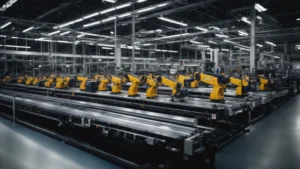It takes a village, a whole lot of farms, and some creative thinking to open an environmentally friendly eatery. But you can do it if you are passionate about the environment, community, and food. Opening an eatery or restaurant is an exciting opportunity no matter what kind. For many, a trend in the industry is to open environmentally friendly establishments that take the environment into account with all business decisions. Attractive to the upcoming generation, these environmentally establishments have an eye toward a healthy future. If you are environmentally conscious and are considering opening an eatery, here are four things to think about as you make steps toward revealing your Earth-approved menu.
1. Think about reusable equipment.

When considering where to start, words like reuse, repurpose, and sustainable will matter to you. When thinking about inventory, for example, there are ways to repair or replace refrigerators that may have otherwise wound up in a landfill. Instead of buying a new fridge for your eatery, think about refrigerator repair. Qualified technicians can easily take old appliances and turn them new. Whether you’re in the market for a new refrigerator, need a fridge with an ice maker, or a side refrigerator is important to you, consider buying used. While you might not have the perks that come with warranties, you will likely save money with a basic repair cost over buying new. At the same time, you’ll be doing great things for the environment, too. Think of all the materials you’ll be able to salvage simply in kitchen design alone. Over time, Mother Earth will thank you.
You don’t need to stop at the fridge. From dishwaters to stainless steel ovens, any restaurant or eatery kitchen item you can think of can be purchased used. Small repairs or something as simple as replacing a thermostat could save bundles and help with climate change too. If you aren’t sure where to begin, think about looking up best bet and brand name appliances in Consumer Reports. You may not need repairs at all if you invest in something durable. While you’re at it, think vintage.
Our planet has been around for longer than any of us. A theme for your restaurant could quite easily run hand in hand with refurbished retro. From estate sales to junk yards and flea market, a little creative thinking and some repurposing could help you get that eatery dining room up and running at minimal cost.
2. Consider locally grown.

Part of helping the environment means considering our energy footprints. If you are environmentally conscious, you already know about the toll long commutes, gasoline, exhaust fuels and more take on the environment. One way to reduce this is to find ways to get yourself rehabbed, chef-quality kitchens stocked with locally grown foods. If you’re in it for the long run, sometimes the extra costs of buying locally and even organic will ultimately pay off for a few reasons. From attracting customers who care about the environment to networking with area business, you’re putting money back into the local economy, too. Better, still, food will be fresher and something you can brag about on that menu.
Consider reaching out to local farmers and growers. You can find them at small town farmers markets or even call your local organic health co-op for a list of people in your area in the business of selling wholesale to eateries and restaurants like yours. The connections you make with local environmentally friendly networks could even add up to a whole new group of customers in the future. If you decide to go this route, it will also impact the menu. You could plan for seasonal items and menus based on whatever’s in season.
3. Know your chemicals.

Chemicals, whether used on foods or in cleaning agents, can be harmful not only to the environment but to the nutritional quality of foods, too. If you plan to open an environmentally friendly eatery, you’ll want to know your chemicals. At the same time, you might contact a biodiesel company in Portland, OR to see about oil collection and converting your cooking oil into biodiesel fuel. All of that cooking oil from your grease trap can end up turning into gallons of biodiesel that runs vehicles. A little bit goes a long way when it comes to biodiesel.
Do your research. Look into chemicals that are both organic and non toxic not only in the kitchen but in dining areas too. A good rule of thumb for this that if it isn’t all natural, it’s not the right chemical for you or your budding business. The same goes for the foods you chose.
For some interested in environmentally friendly food sales, one thing to consider is going fully organic. Avoiding pesticides and working with only natural foods is one of the easiest ways to avoid harsh or potentially harmful chemicals. From the fruits and vegetables you serve, right down to herbs, going organic will only help with your overall mission and brand. And Mother Nature may thank you for it.
4. Network with environmentally friendly groups.

The same way you want to look to local farmers to fill your food supplies, networking with well known environmentally friendly groups will do great things for your overall brand. Whether it’s getting involved with food donations or serving on boards that do advocacy work for the environment, all will help in getting your message across to customers and may even give you idea of how you can stay ahead of market trends.
When forming these connections, look toward ways you can combine resources with other companies with the same goals. Whether it’s offering your eatery for annual meetings, joining eco-conscious groups, or even becoming part of a farm to food program, doing so will help you stand out as an environmentally conscious innovator as well.
Consider opening your eatery up to the community in other ways too. A different form of networking, you could host monthly classes on recipes or general cooking with organic vegetables. You could host talks by local students or professors on climate change and other important environmental issues. By welcoming the community and your new network into your world, we’ll all be better for it. From Earth Day special events and meal discounts to donation cans on counters for local farms, rooting yourself into the local community and a bigger network will help pay off in the long run.





